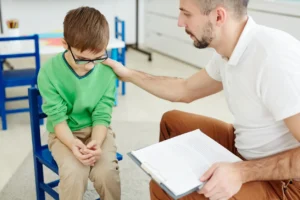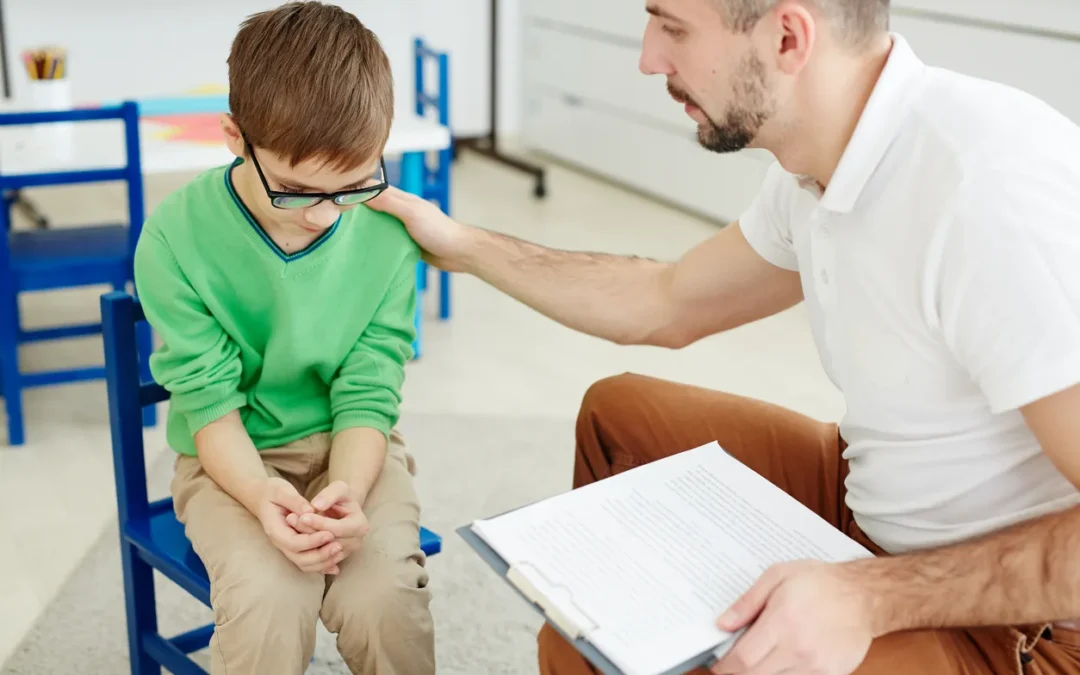No matter how old your child may be, school plays a major role in their lives. For many, it’s the center of their social life—an environment in which they cannot help but compare themselves to others as they try to find their place. School is full of uncertainties, ranging from conflict with other kids to struggles learning new concepts. Accordingly, it makes sense that for many kids, school is a source of anxiety. Despite the structure and routine, each day brings new social and academic challenges.
In today’s post, we’ll explore what school anxiety is, and how to help your child cope.
What is School Anxiety?

Table of Contents
How Can You Help?
Sometimes protecting our kids from the world means stepping in and advocating for them. Other times it means teaching them strategies and techniques to manage anxiety.
Some key strategies include:
Open Communication
Parents often shield their children from their own worries as a way of protecting them. Instead, consider opening up to your children about some of your own thoughts and fears without overwhelming them. Sharing in this way helps remind children that they aren’t alone, and also gives you a chance to model your own approach to dealing with anxiety.
Open, vulnerable communication between parents and children fosters a closer bond and helps establish a feeling of safety and trust. By being a safe space for your child to share their fears, you can help them process those feelings in a secure environment.
Practice Breaking Down Tasks
It’s easy to feel overwhelmed when staring down a deadline. If your child is struggling with homework or projects, consider helping them by teaching them to break down those processes into smaller tasks. In addition, you can help make those tasks seem easier to manage by working with them to schedule limited working sessions of 20 – 30 minutes, with breaks baked in. This can be especially helpful for kids with ADHD, who may feel overwhelmed more often.
Practice Grounding
One of the most effective ways to deal with anxiety is to practice shifting your attention from your worries to your environment. Grounding techniques help by focusing people’s attention on their five senses. Teach your child to short-circuit panic attacks and anxiety by focusing on textures, smells, and sounds in the environment. Adding scratchy stickers to their school laptop can help them reset in class without drawing too much attention.
Noise Limiting Earbuds
Many kids and teens feel overwhelmed by busy, loud environments. Vibe and Loop offer noise-limiting earbuds that can help drown out the noise and make it easier to focus. Keeping these stashed away for an emergency gives your child a powerful tool to manage their environment.
Limit Academic Pressure
Whether your kid is a straight-A student or struggling, academic pressure is rarely helpful. Stress produces hormonal changes that have a real, physiological impact on our bodies. Prolonged periods of stress make it harder to keep up. Commend them for effort, without punishing them for bad grades.
Counseling
Sometimes, dealing with school anxiety requires a more comprehensive approach. If your child is struggling to manage anxiety at school, please reach out for a free consultation for child therapy. I would love to work with you to create a road map for you and your child to face this challenge together.


